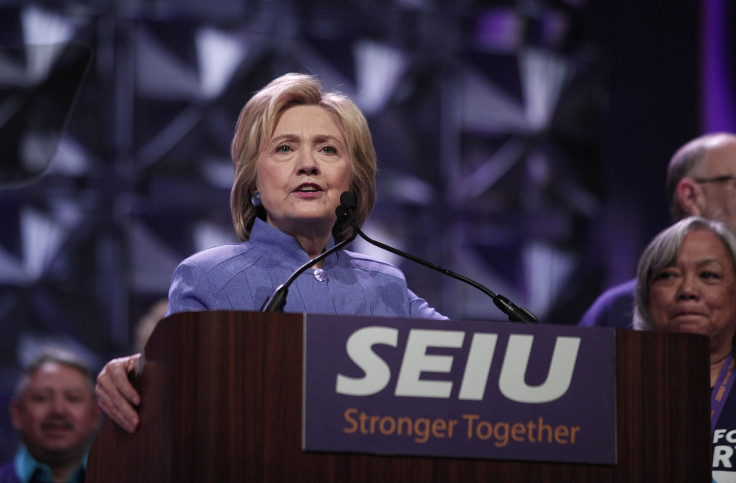Virginia Election Polls 2016: Trump And Clinton Tied In Battleground State, According To New Survey

Former Secretary of State Hillary Clinton and business mogul Donald Trump are tied in the battleground state of Virginia, a Roanoke College poll released Monday states. The poll found that while support for the presumptive nominees was split, both candidates suffered from low favorability ratings.
Both the likely Democratic nominee and the presumptive Republican saw 38 percent of support among those surveyed. Just 30 percent of people polled had a favorable view of Clinton, and 50 percent had an unfavorable view. Ratings of Trump were even lower, however, with 23 percent of likely voters surveyed saying they had a favorable view of him and 56 percent saying their view of the real estate mogul was unfavorable.
Trump and Clinton are looking to pivot to the general election as they close in on their nominations. Following the suspension of the campaigns of Texas Sen. Ted Cruz and Ohio Gov. John Kasich, Trump is the presumptive nominee for the Republican Party, barring a brokered convention.

Clinton leads her Democratic rival, Vermont Sen. Bernie Sanders, by several hundred delegates in a race that analysts say has become mathematically impossible for Sanders to win. The senator and self-described socialist has not dropped out of the race, however, and he has been slow to support Clinton.
“I don’t want to see the American people voting for the lesser of two evils," Sanders said on ABC's "This Week" Sunday. "I want the American people to be voting for a vision of economic justice, of social justice, of environmental justice, of racial justice. That is the campaign we are running, and that’s why we are getting the support we are.”
The poll was conducted between May 9 and May 17 among 610 likely voters in Virginia. It had a margin of error of plus or minus 4 percent.
© Copyright IBTimes 2024. All rights reserved.












